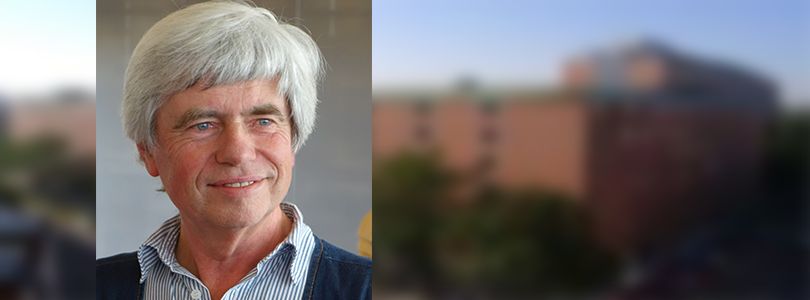Content
Bernhard Neumayer


„I had the impression that there was a strong bonding, across divisions, among the colleagues from the former Office for Inventions and Patents.“
Former patent examiner at the DPMA
DPMA:How did you experience the events in 1989/90?
Bernhard Neumayer:The fall of the Berlin Wall personally touched me very much. Although I did not have any relatives in East Germany, I was often wondering what it was like to live in a state that had drawn up an insurmountable border to cut itself off from the West. I followed the Peaceful Revolution on the TV and the radio. I was happy about the outcome. I was fascinated by the peaceful course of events. That is what I still find remarkable today.
DPMA:Did colleagues from the former AfEP join your division in the early 90s and if so how were they received?
Bernhard Neumayer:In the early 90s – I do not recall the exact year – the head of our division told us that a female examiner from the AfEP and a second examiner, who was quite young at that time and had just started his patent examiner training at the patent office of the GDR, would join us. The DPA then saw ever more examiners from East Germany joining its patent divisions.
I had the impression that there was a strong bonding, across divisions, among the East German colleagues. At least in our division, the organisational skills, obviously necessary in the former GDR, had quite positive effects. I am sure that this also contributed to the good reception the two colleagues received. There were no problems.
DPMA:Were you worried that the patent office might move from Munich back to Berlin?
Bernhard Neumayer:At that time, there were discussions that, under the Berlin/Bonn Act, which provided for the move of a federal authority – the office might move to Bonn. There were thoughts of a renovation of the main building in Munich or of a relocation. One had to ask oneself: If the office moves to Bonn, would I also move? Or a relocation to Berlin... For my relatives were all living here in Munich.
DPMA:Would it have been difficult for you to move?
Bernhard Neumayer:Yes, that would really have been difficult for me. I can still recall a staff meeting which gave me great relief. President Dr Erich Häußer said that an examination had been conducted to compare the costs of a relocation with those of a renovation of the building. The result was that a renovation was less costly than a relocation. That was very good news for most of us.
DPMA:Did many female examiners work at the patent office in Munich?
Bernhard Neumayer:Before 1990, only few female patent examiners worked in the office in Munich – apart from the divisions dealing with chemistry. In our division, there were no female examiners at that time either. After the reunification, the number of women increased significantly. A professional experience of five years after the studies is required to join the German Patent Office. Perhaps, this requirement was one of the reasons for the small number of women in patent examination. In West Germany, many women with a university degree perhaps left their profession for family life and child care. In addition, at the time I was a student, only few young women were interested in studies of electrical engineering, mechanical engineering or physics.
DPMA:What else do you recall from that time?
Bernhard Neumayer:At that time, too, the patent office regularly participated in fairs in order to provide information about intellectual property protection. For example, as a patent examiner, I was present at stands several times a year. In the early 90s, the colleagues from the former East German office joined us for the fairs in order to provide information, at least in the first years, regarding the continued existence of IP rights from the former GDR. The visitors to the fairs were very interested especially in these issues. Among those joining us for fairs were Bernd Antonius and employees of the patent information centre in Dresden and of the University of Ilmenau. This has led to good contacts that still exist today.
Last updated: 10 December 2025

Not only protecting innovations
Social Media